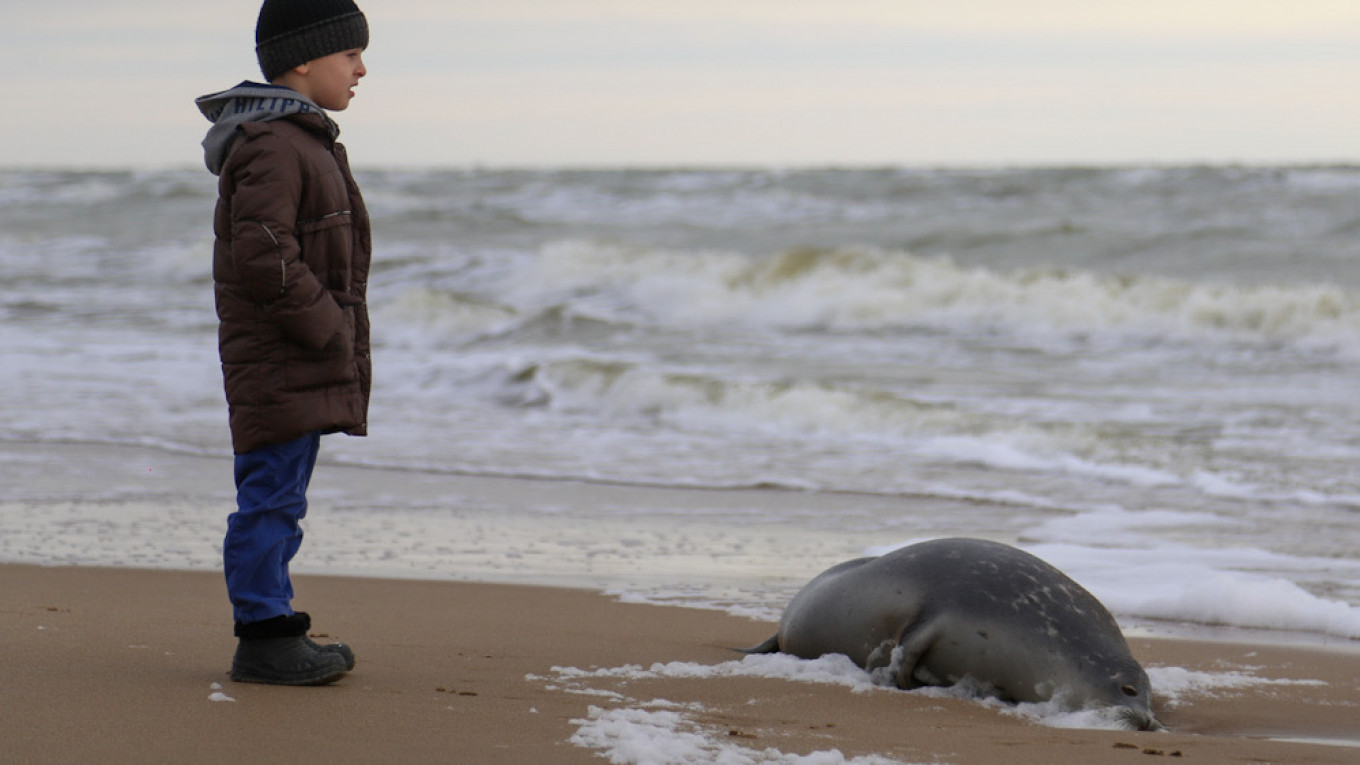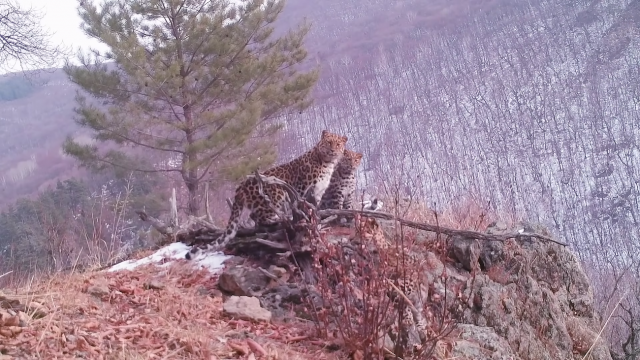A dozen dead endangered seals have been found washed up on the shores of the Caspian Sea in southern Russia.
Footage shared from the republic of Dagestan last week showed Caspian seal carcasses lying motionless on the beach. Rescuer Ziyavdin Nikamogamedov said he had encountered at least 17 dead mammals in the dirty waters following torrential rains.
Environmentalists told Interfax the seals may have died from tightly meshed poaching nets or raw sewage poisoning.
The Defense Ministry-run Zvezda broadcaster found what it called Chinese-made fishing nets often used by poachers lying on the sand near the Caspian seal carcasses. Russian Academy of Sciences biologist Magomed-Rasul Magomedov told Zvezda the seals may have died as early as one month ago, but were only washed up by a recent tidal wave.
Regional environmental prosecutors launched an investigation into the animals’ deaths, the RIA Dagestan news agency reported Sunday.
The Caspian seal population has declined from around 1 million to 40,000-60,000 in the past century, zoologist Ilya Gomyranov told the Dozhd television broadcaster.
Russia added Caspian seals to its list of endangered species in 2020, one year after Dagestan.
Dagestan adopted a Caspian seal conservation program in 2015.
Researchers previously attributed the deaths of more than 10,000 Caspian seals in 2000 to a viral disease known as canine distemper.
The latest mass Caspian seal death is part of a recent string of marine life deaths and other ecological disasters in Russia that have sparked environmental fears.
A Message from The Moscow Times:
Dear readers,
We are facing unprecedented challenges. Russia's Prosecutor General's Office has designated The Moscow Times as an "undesirable" organization, criminalizing our work and putting our staff at risk of prosecution. This follows our earlier unjust labeling as a "foreign agent."
These actions are direct attempts to silence independent journalism in Russia. The authorities claim our work "discredits the decisions of the Russian leadership." We see things differently: we strive to provide accurate, unbiased reporting on Russia.
We, the journalists of The Moscow Times, refuse to be silenced. But to continue our work, we need your help.
Your support, no matter how small, makes a world of difference. If you can, please support us monthly starting from just $2. It's quick to set up, and every contribution makes a significant impact.
By supporting The Moscow Times, you're defending open, independent journalism in the face of repression. Thank you for standing with us.
Remind me later.






